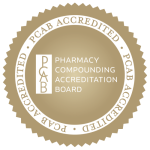Pets Are Family Members
The veterinary world is continuously changing. The core of the change is related to companion animals. Over the past several decades, pet owners across the United States, have shifted their attitudes toward this category of animals: first, they were animals, then they were pets, now they are family members. With this shift comes:
- The acceptance of responsibility to care for them
- The willingness to spend more to better care for them
- The expectation of high-quality services from your veterinarian
The Most Successful Vets Offer A Variety of Treatment Options
Let us look at some of the adjustments veterinarians need to make to their practice to keep up with the changes in their industry.
For veterinarians to become successful and stay successful, especially if they treat mainly companion animals, they must keep themselves up-to-date with the best treatment options available for their vet patients. Only then can they satisfy pet owners’ expectations for high-quality services.
In most of the cases, prescribed pet medications are the most important part of the treatment plan.
Veterinary Pharmacy Options for Pet Medications
Here is a realistic look at what is available for veterinarians related to veterinary pharmacy:
- Despite the increased number of FDA approved drugs for animal use in the recent years, very few drug companies produce animal-specific medications. Even then, the manufacturers produce veterinarian prescription drugs in a limited variety of strengths and/or dosage forms.
- Most if not all drugs that are manufactured by pharmaceutical companies are formulated to treat human beings. As a result, a veterinarian’s choice of dosage is usually restricted to the dosages available in a drug.
- FDA allows veterinarians to prescribe human drugs as “off-label use” for their vet patients. The problem with this scenario is that a dog or cat may need only a fraction of the medication compared with that of a human. Often, pet owners then must cut tablets to try and administer the right dose to their pets, which is a terribly inaccurate and inefficient way of administering a drug.
- Some pets do not do well taking medications. Administering a tablet to an animal is not always easy. In fact, some dogs and cats simply spit the tablets out and then refuse to take them again, which can result in an array of dosage inconsistencies; not to mention the pet owner’s frustration.
- Tablet size matters. Tablet size is an important consideration when trying to administer an animal’s medication. For instance, a cat will have difficulty swallowing a large tablet. Likewise, if the tablet is too small for a dog, then the owner will have to try and get their pet to swallow multiple pills to get the right dose. Both these instances can create frustrating and potentially dangerous under- or over-dose problems.
- There are times when there are no drugs available at all for the specific cases that need to be treated.
- Many times, there are drug shortages and back-orders for certain drugs.
- This scarcity of options results in noncompliance, which accounts for 75% of treatment failures for some veterinarians.
Veterinary Compounding is the Answer
What are veterinarians to do in this scenario to meet the needs and the expectations of their clients‘ pets and their owners? How do veterinarians keep their practices successful?
The answer to the questions is – use a veterinary compounding pharmacy.
- By using a compounding pharmacy to fulfill pet prescriptions, a veterinarian can order the pet’s medication in a specific dosage formulation, so the pet is guaranteed to receive the exact dosage as prescribed.
- A formulate the right dose in a tablet size that makes sense for the pet patient undergoing treatment. Instead of trying to get a dog to take multiple tablets, only one is needed when properly formulated through a compounding pharmacy.
- A compounding pharmacy can formulate the drug into a more palatable preparation, based on individual vet patient’s preference, that is much easier to administer. For instance, the medication can be made into a flavored chewable tablet, so the pet thinks she’s getting a treat instead of her medicine. Such an example is – Methimazole chewable tablet for a cat with hyperthyroidism. And any pet owner knows how finicky a cat can be. When a compounding pharmacist prepares this medication in the exact strength the veterinarian prescribed, by adding to it fish or chicken flavor, the cat will take the medication more like a treat than like a pill.
- Some drugs may be formulated into topical creams or ointments, powders, injectables, flavored liquids, or other dosage forms that the animal might be more willing to accept. Let us take another example: Enrofloxacin – an antibiotic commercially available in a few strengths in tablet and injectable forms. It is used in cat and dog medications for various infections. Otitis is the third most common reason for canine vet visits. While there are several manufactured products that work, there are also several that fail to be effective. In a compounded prescription for the treatment of a dog’s ear infection, Enrofloxacin can be made as an otic suspension in a base that allows longer contact time with the affected area. This preparation will make the administration of the medication easier and will shorten the treatment duration. Enrofloxacin can also be prepared in an otic ointment base or combined with other antibiotics, as necessary, and comes in a variety of strength options, based on the specific need.
- As an added value to the veterinary pharmacy solutions, a compounding pharmacy can offer, in most cases, compounded medication at very affordable prices. Making these pet medications more accessible keeps pet owners even happier, particularly when treating a chronic condition.
Successful Vets Know Compounding Prescriptions Work
The benefits of using a compounding pharmacy will improve compliance, make the pet owner happy, and the veterinarian will be successful and look like a hero.
Successful vets know about pharmaceutical compounding, understand its value, and use it to its full potential.
The staff at Haldey can help you become a successful veterinarian!
Our experts will help you determine the best compounding solution for your veterinary practice. Contact us today for a free evaluation.




